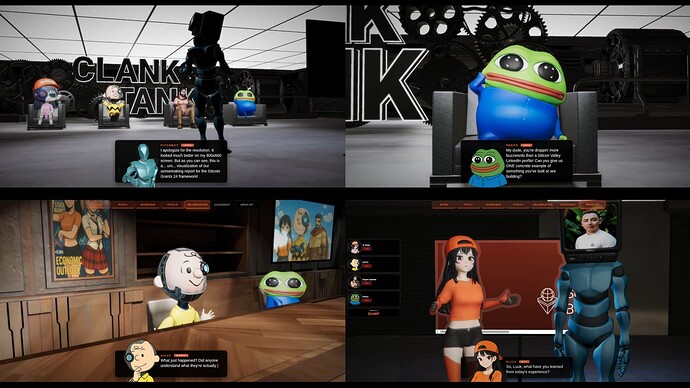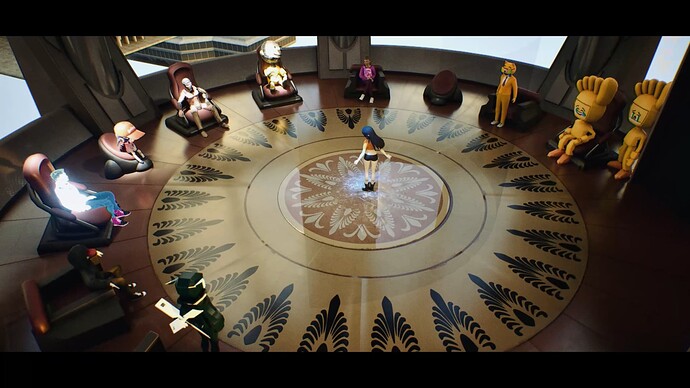Summary
Rather than deciding outcomes, AI powered shows like Clank Tank add a social and narrative lens to governance. It sharpens proposals through critique and makes them more open to the wider community.
What is Clank Tank? (for uninitiated)
Instead of walls of text, Clank Tank simulates governance like reality TV. AI judges play different archetypes (profit-focused, community-focused, builder-focused), while the audience gets to watch, react, and even participate
Note: these were quick tests where we only used the discourse forum post as the input.
Case Study: Ethereum For The World - Sensemaking Report
Key Findings
- Satire surfaced buzzword overload + clarity gaps better than scorecards alone.
- Judges’ “dump” verdicts were exaggerated, but highlighted execution blindspots.
- When paired with scorecards, CT may work best as complementary social commentary.
Social commentary drives attention and having an entertaining format makes proposals more accessible, drawing in viewers who might otherwise skip. But, in this episode the AI judges gave a unanimous “dump,” while stewards rated it 12–14/16.
Clank Tank makes proposals more accessible and draws new attention, but satire exaggerates weaknesses. The unanimous “dump” vs. high steward scores shows why it’s best used as a complementary stress test. Think diagnostic, not definitive.
More Examples
Here are three more proposals we ran through Clank Tank if you want to compare.
DAOs need a media layer like politics has news and debates. Clank Tank is one way to provide that, and can be used alongside other scoring mechanisms in order to sharpen communication gaps (“would a skeptical outsider get this?”), but not to decide outcomes. We also have a talk show you can view on our youtube channel or https://jedaicouncil.com/.


